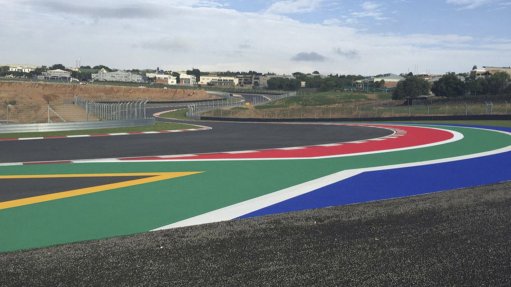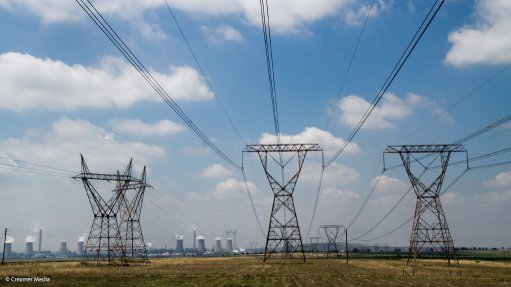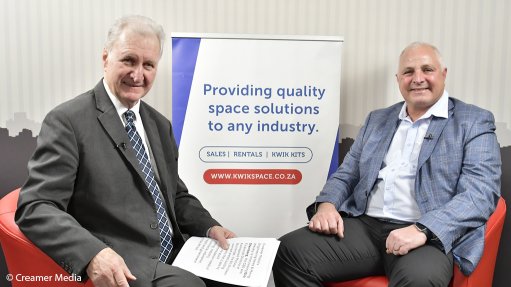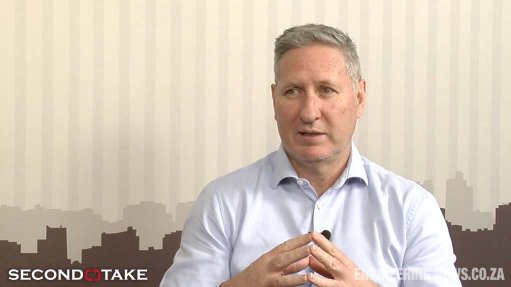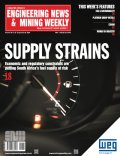Tests validate SCP’s ability to improve concrete durability
This article has been supplied and will be available for a limited time only on this website.
Innovative SprayLock Concrete Protection (SCP) technology provides a reliable and quantifiable improvement in the service life and structural integrity of concrete infrastructure, according to the latest tests undertaken by an independent South Africa laboratory.
The tests were initiated by an asset owner to determine whether concrete treated with SCP Industrial met its rigorous concrete durability requirements.
“Durable concrete has become increasingly important due to the widespread deterioration of reinforced concrete structures very early on in their lifecycles. Extensive maintenance and repairs increase the operating costs of infrastructure over their lifecycle, placing an enormous strain on already-stretched public-sector budgets,” Carl White, Managing Director of Spraylock Africa, says.
Two 600 × 400 × 150 mm concrete panels that were cast on a power station site and then treated with SCP P3 Industrial were tested for durability. They were cast using a W40 concrete mix. This durable concrete was designed by a prominent civil engineering consultancy and cured using conventional, tried-and-tested methods.
The tests were undertaken by Roadlab Laboratories and Specialized Concrete Consulting Services (SCCS). “Our tests confirm that SCP offers a reliable and quantifiable improvement in the service life and structural integrity of concrete infrastructure,” SCCS Concrete Technologist, Jacques Steyn, says.
He explains that the tests were undertaken strictly according to the South African National Standards’ concrete durability testing standard, with the exception of certain modifications to facilitate the collection of specific data required for the assessment. “As opposed to trimming the first 5mm of the core samples, they were cut into four sections, each 30mm in length and about 2mm in thickness. These sections were tested sequentially to determine SCP’s penetration effectiveness,” he expounds.
The samples underwent Oxygen-Permeability Index (OPI) testing to determine carbonation resistance and Chloride Conductivity Index (CCI) testing, a proxy for chloride diffusion.
All SCP-treated concrete samples achieved > 10 OPI, denoting a very low gas permeability, and the 0.70–0.89 mS cm⁻¹ CCI values achieved fall in the “Excellent” range and well below the 2.0 mS cm⁻¹ site-acceptance threshold.
“The combined results confirm that the SCP P3 Industrial-treated panels feature a dense and effectively sealed microstructure that can easily withstand aggressive environmental conditions that contribute to corrosion,” Steyn says.
“Impressively, these durability gains were achieved at a depth of at least 94mm, confirming SCP’s deep and thorough penetration capacity. The average OPI results for SCP treated samples were 10,96 and the durable control samples average was 10,33. This equates to an oxygen permeability reduction by 6%. The CCI for the SCP treated samples were 0,51 and the durable concrete samples average was 0,62. This is a chloride conductivity reduction of 22% on already durable concrete,” White elaborates.
Sheldon White, Spraylock Africa’s National Sales Manager, explains that SCP P3 Industrial penetrates concrete via its accessible capillary system, reacting with available free alkali to form calcium silicate hydrate (C-S-H), which is essentially more concrete.
“This action permanently protects the matrix of new or existing concrete after a single spray application by one of our many approved SCP applicators throughout Africa,” he says.
Spraylock Africa is the official African representative of United States-based SCP, a worldwide leader in the development post-initial set applied colloidal silica solutions that solve tomorrow’s concrete challenges today!
Comments
Announcements
What's On
Subscribe to improve your user experience...
Option 1 (equivalent of R125 a month):
Receive a weekly copy of Creamer Media's Engineering News & Mining Weekly magazine
(print copy for those in South Africa and e-magazine for those outside of South Africa)
Receive daily email newsletters
Access to full search results
Access archive of magazine back copies
Access to Projects in Progress
Access to ONE Research Report of your choice in PDF format
Option 2 (equivalent of R375 a month):
All benefits from Option 1
PLUS
Access to Creamer Media's Research Channel Africa for ALL Research Reports, in PDF format, on various industrial and mining sectors
including Electricity; Water; Energy Transition; Hydrogen; Roads, Rail and Ports; Coal; Gold; Platinum; Battery Metals; etc.
Already a subscriber?
Forgotten your password?
Receive weekly copy of Creamer Media's Engineering News & Mining Weekly magazine (print copy for those in South Africa and e-magazine for those outside of South Africa)
➕
Recieve daily email newsletters
➕
Access to full search results
➕
Access archive of magazine back copies
➕
Access to Projects in Progress
➕
Access to ONE Research Report of your choice in PDF format
RESEARCH CHANNEL AFRICA
R4500 (equivalent of R375 a month)
SUBSCRIBEAll benefits from Option 1
➕
Access to Creamer Media's Research Channel Africa for ALL Research Reports on various industrial and mining sectors, in PDF format, including on:
Electricity
➕
Water
➕
Energy Transition
➕
Hydrogen
➕
Roads, Rail and Ports
➕
Coal
➕
Gold
➕
Platinum
➕
Battery Metals
➕
etc.
Receive all benefits from Option 1 or Option 2 delivered to numerous people at your company
➕
Multiple User names and Passwords for simultaneous log-ins
➕
Intranet integration access to all in your organisation







